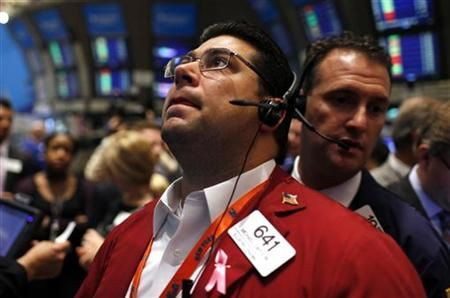U.S. Stocks Obliterated Last Week: is it Time to Buy?
(COLUMN)

The U.S. stock market was obliterated last week. The S&P 500 Index dropped 92.9 points, or 7.2 percent, which was its worst performance since November, 2008.
With this drop, U.S. stocks look historically cheap and might be a bargain.
Barron's pointed out that with the S&P 500 at 12 times the estimated 2011 profits, it's trading at one of its cheapest valuations in a generation. Moreover, the dividend yield of the Dow Jones Industrial Average exceeds that of the 10-year Treasury yields.
Historically, 10-year Treasury yields exceed the Dow's dividend yield and the price-to-earnings ratio of the S&P 500 averages above 15.
Therefore, if one believes in the long-term viability of the U.S. economy, August 2011 presents an excellent buying opportunity. Moreover, some heavyweight investors have come out with buying recommendations.
Bloomberg reported that both Barton Biggs, a legendary investor, and Laszlo Birinyi, who called the March 2009 bottom, thinks the U.S. equities bull market still has some ways to go.
However, there are tremendous risks associated with owning stocks right now.
The biggest concern is that the U.S. economy will go into a double-dip recession; the housing market has already double-dipped, the three most recent U.S. monthly jobs data were weak, and the latest GDP report shows a halting 1.3 percent economic growth rate.
Moreover, if the economy continues to sink, the U.S. government may not be able to come to the rescue.
Political resistance against government stimulus is entrenched. The U.S. government, downgraded for the first time by Standard and Poor's, is pressured to cut the budget deficit, so fiscal stimulus is difficult to push through. Federal Reserve Chairman Ben Bernanke is facing strong political resistance from the Republicans and the Tea Party.
When the stock market faltered in 2010, the U.S. government rescued it with QE2 and President Obama's tax compromise with the Republicans.
If the stock market falters in 2011, the U.S. government will not step in so quickly, at least not until things get very ugly. Therein lies the risk of buying bargain-priced U.S. stocks, especially if one's holding period is short-term.
© Copyright IBTimes 2025. All rights reserved.




















